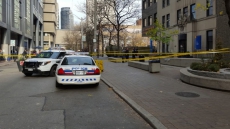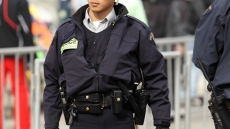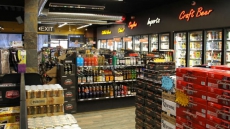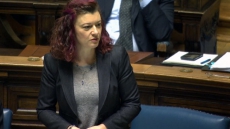WINNIPEG — For years, Bernadette Smith says, she felt like she was waging a battle on her own.
When her sister, Claudette Osborne, disappeared in 2008, Smith held vigils with a handful of people who knew her pain, put up "missing" posters with family members and, more recently, organized a group to drag Winnipeg's Red River for clues about the fate of missing and murdered indigenous women.
"I remember feeling so angry and crying and going: 'Where is everybody? Why doesn't our community care about our women?'" Smith recalls. "Does a life not matter?"
Osborne's four children and Smith still don't have the answers they are looking for, but the search has become a little less lonely.
And when an inquiry into missing and murdered indigenous women gets underway, as early as the summer, Smith and other families hope their voices will be heard and given the weight they deserve.
"It's the families that are living this every day and breathing this," Smith says. "They're the ones who know what could have prevented what's happened to their loved ones."
The RCMP issued a landmark report last year which put the total of missing and murdered aboriginal women at 1,181. Indigenous women make up 4.3 per cent of the Canadian population, but the report found they account for 16 per cent of female homicides and 11.3 per cent of missing women.
For years, the families whose loved ones are part of those statistics called for an inquiry, but the previous Conservative government steadfastly refused.
The Liberals came to power in October and last week new Indigenous Affairs Minister Carolyn Bennett announced an inquiry the shape and scope of which is to be determined in the next few months. It will rely heavily on input from families, she said.
Many are asking for the power to formally advise the inquiry. They want to ensure financial assistance for those who want to participate, as well as guarantee culturally appropriate support services.
"It's a lot different than any other kind of commission or inquiry," says Beverley Jacobs, lead researcher on Amnesty International’s report on missing and murdered indigenous women. "It's very spiritual and emotional ... We're not talking about a pipeline."

Jacobs, who is a former president of the Native Women’s Association of Canada, has a personal interest in the upcoming inquiry.
Her cousin, Tashina General, was 21 when her body was found in a shallow grave on the Six Nations reserve in southern Ontario. General was four months pregnant and had been strangled. Her former boyfriend was convicted of second-degree murder, but a new trial recently was ordered upon appeal.
An inquiry has to have built-in ceremonies that take into account that a dead woman's spirit is disrupted every time her name is mentioned, Jacobs says.
"They're resting (and) we're bringing up some of the horrific issues that they had to endure. They're very close by. Having that ceremony, feasts and elder involvement has to be an integral part of the inquiry process."
The inquiry should also learn from the Truth and Reconciliation Commission by travelling to often-remote communities to better understand the victims, she suggests.
Families, she says, will need culturally appropriate support services as they relive the trauma of losing their mothers, daughters, aunts or sisters.
"It's to ensure that no harm is done to any person that's involved."
Grand Chief Sheila North Wilson, who represents northern Manitoba First Nations, says the process must be shaped by those who have fought so long for the issue to be recognized.
Families who have held vigils to bring attention to the disappearance of indigenous women are the reason why an inquiry has been called, she says. The inquiry should not only honour them, but listen to them carefully.
"It would give us all the lay of the land — how police react to them, how they have to do ... the searches themselves," says North Wilson, head of Manitoba Keewatinowi Okimakanak. "They know what it feels like to be patronized."
For Smith, the inquiry wasn't something she lobbied for.
A government committed to reducing violence against indigenous women could use the estimated $40 million the inquiry will cost on programs addressing the root causes highlighted by previous studies, she says.
But now that an inquiry is coming, she wants to be part of it.
"We've waited this long."





